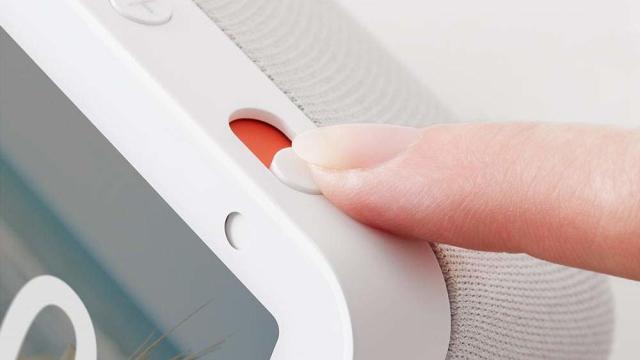There’s a new Echo in town. The Echo Show 5 is a smart display with a 6 inch screen scheduled for a June 26 release, and it’s the first Echo device with a physical shutter to cover the onboard camera.
With this release, Amazon is making some changes to how all Echos treat Alexa privacy settings. Users will now have the ability to tell Alexa to delete the current day’s recordings. Which sounds good at face value, but the proposition is more complicated than that.
Here’s how Amazon describes the new Alexa privacy feature:
Amazon is also introducing new, even easier ways to delete your voice recordings on all Alexa-enabled devices—simply say, “Alexa, delete everything I said today” and the respective recordings will be deleted. Coming soon, customers will also be able to delete their last request by saying, “Alexa, delete what I just said.”
That’s good news because deleting Alexa recordings until now has required you to hunt through the labyrinth of Amazon settings to find one very specific page in Alexa privacy settings, where you can review and delete recordings.
The bad news, for Alexa users, is that Amazon has decided to make this new privacy feature opt-in. The toggle to opt-in is also buried in no fewer than four menus on the Alexa app and Amazon’s website. And even once you turn on this option, you’re only given the option to delete a single day’s Alexa recordings, up to the time that you delete them by saying, “Alexa delete everything I said today.”
That means it’s not a full 24-hour period of deletion. Recordings registered after you tell Alexa to delete everything you said will be retained, unless you tell Alexa again to delete everything you said. The clock starts anew at midnight, and at this time, there is no option to delete larger swaths of Alexa recordings.
That means you can’t say something like, “Alexa, delete everything I’ve said this year.” Amazon only lets you do easily delete Alexa recordings for a day—or really, part of a day—at a time. There was previously a similar way to delete part of a day’s recordings, but this only worked by manually selecting “Today” in the Alexa app, not by simply telling Alexa what to do.
It could be worse, right? At least Amazon is making an effort to give users easier control over what happens to their Alexa recordings. Today, the company also rolled out a new Alexa Privacy Hub, which is essentially a section of Amazon’s website with clearer explanations about how Alexa and Echo devices work, especially in terms of privacy. It’s essentially an illustrated guide to stuff like how to know when Alexa is listening and how to delete voice recordings.
Nevertheless, lots of people would feel empowered if Amazon finally took some major steps to improve Alexa privacy. The ability to delete part of a day’s recordings at once might be easier now than it used to be, but it’s not even new. You can go to the page to review your voice recordings—if you can find it—and click checkboxes to delete single recordings.
You can also delete yesterday’s recordings, the past week’s recordings, the past month’s recordings, your entire history, or a custom range. None of this is particularly easy, though, because many users likely don’t know that this page even exists.
There’s also the opt-in issue. The first time you try to tell Alexa to delete the day’s recordings, Alexa will prompt you to go to the Alexa app and enable the feature. But the option isn’t exactly on the front page. You have to go to:
Settings & Alexa Account & Alexa Privacy & Review Voice History & Toggle on “Enable deletion by voice”
So five steps, if you don’t count taking out your phone and opening up the app. An Amazon spokesperson told us in an email, “By making this opt-in, customers are able to control for any unintended deletions from others with access to the device.”
It’s not totally clear which users would prefer sacrificing privacy to the possibility of someone else deleting their voice recordings. It’s also unclear what the consequences of a stranger deleting your voice recordings would be. Amazon would probably just have a smaller amount of data about you on file.
That’s really what it all comes down to, Amazon owning your data. There are some seemingly benign reasons why Amazon wants to keep all your recordings. The company says that it needs these recordings in order to improve Alexa’s ability to understand your voice and to build new Alexa features.
The basic technologies behind voice assistants and natural language processing support this idea. Amazon also says that improving the software is why it employs a team of humans to review transcripts of certain recordings, a detail that recently caused quite a stir in the privacy community. At the same time, privacy advocates decried Amazon specifically for not giving Alexa users more control over their recordings.
If this is Amazon’s answer to the recent controversy, it’s kind of hilarious. The company appears to be responding to outrage over privacy by making deleting Alexa recordings, something that was famously difficult, difficult in a new and different way.
It does seem like a good sign that Amazon is listening to the millions of people who are buying and using its devices, which many privacy experts equate to wiretapping devices. But it’s really funny that a company this big and rich can’t figure out how to do privacy right. It’s almost as if Amazon doesn’t want to.
